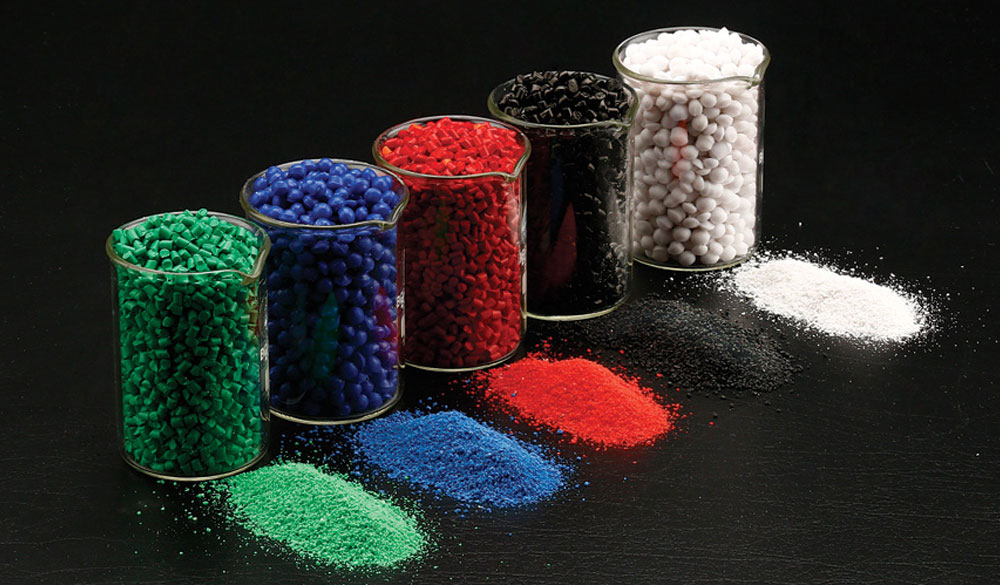Plastic has become ubiquitous in our daily lives with widespread applications across various industries like packaging, construction, automotive and more. However, spiraling plastic production has also led to a massive waste problem that is difficult to tackle. It is estimated that around 300 million tons of plastic waste is generated globally every year out of which only around 9% gets recycled. Most of this plastic garbage ends up polluting landfills and the environment. With plastic not readily biodegradable, it clogs drains, chokes rivers and marine life. The detrimental impact on biodiversity has become difficult to ignore.
The Potential of Plastic Recycling
Recycling plastic prevents new plastic production, conserves energy and resources. It involves collecting plastic waste, sorting and processing it to obtain plastic granules that can substitute virgin plastic in manufacturing various products. These Recycled Plastic Granules offer a sustainable solution for industries seeking alternatives to virgin plastics. While the quality may be inferior, they perform sufficiently for many applications if blended properly with virgin material. This diverts plastic waste from landfills and makes recycling a commercially viable option.
Challenges in Recycling and Utilization
However, large-scale recycling and proper utilization of recycled plastic granules faces several challenges. Plastic waste is often contaminated which affects the quality of recycled plastic. Lack of public awareness results in mixed plastic waste collections making segregation difficult. Absence of effective waste collection mechanisms in many regions contributes to losses. Industries also hesitate using recycled plastic due to preconceived notions regarding its quality and consistency of supply. These issues need to be addressed through policy support and advanced recycling technologies to realize recycling’s full potential.
Advances in Plastic Recycling Technologies
Significant progress is being made to modernize plastic recycling processes and produce quality recycled plastic granules on a commercial scale. Advanced sorting technologies like infrared and sensor-based systems now allow high-efficiency separation of different plastic types from mixed streams. Improved washing and decontamination processes yield cleaner recycled plastic flakes. Investments in mechanical and chemical recycling plants equipped with extruders, shredders and melting tanks can handle large volumes of plastic waste cost-effectively. Blockchain based plastic credits also help trace recycled plastic quantities enhancing transparency. These technological upgrades promise consistent, high-quality recycled plastic granules for industrial substitution applications.
Production of Recycled Plastic Granules
The typical recycling process starts with collecting and transporting plastic waste to a recycling facility. Automatic sorting machines first segregate plastic types which are then washed, crushed and shredded into flakes. These flakes undergo further processing that involves melting them in extruders at high temperature with applied pressure to obtainhomogenous plastic granules. Their properties can be customized by adjusting temperature, pressure and adding additives as required. Quality testing determines specifications of different recycled plastic granule grades produced. Advanced plants are now designed as fully automated continuous process lines capable of recycling over 10 tons of plastic waste per hour.
Major End Uses for Recycled Plastic Granules
Given adequate quantity and uniform quality, recycled plastic granules offer a sustainable alternative to virgin plastics for various industrial product applications. Some major recycled plastic granule utilization areas are:
Construction Material Manufacturing: Used in pipes, drainage systems, windows and door fittings, roofing sheets, wire and cable insulation etc. replacing virgin PVC, PE and PP.
Packaging Industry: Recycled HDPE and PET granules widely replacing virgin materials in flexible consumer packaging films, containers, crates, pallets, strapping etc.
Automotive Components: Interior and exterior plastic components, under-bonnet parts, dashboards etc. utilize recycled ABS, PP and nylon.
Textiles: Fiber blending for carpets with PE and polyamide recycled granules.
Others: Electrical and electronics enclosures, household items, agriculture, stationary goods and many more.
Benefits of Using Recycled Plastic Granules
Industries gain significant economic and environmental benefits from incorporating recycled plastic granules in appropriate product applications:
– Lower Plastic Material Costs : Recycled plastic granules are 30-50% cheaper than virgin plastics.
– Energy Conservation: Recycling plastic saves around 85% energy compared to virgin plastic production.
– Raw Material Substitution: It reduces dependence on petroleum feedstock for virgin plastics.
– Carbon Emissions Cuts: Plastic recycling lowers carbon footprint versus producing plastic from oil.
– Landfill Waste Reduction: Recycling plastic waste diverts it from overflowing landfills.
– Sustainable Credential: Using recycled content enhances the sustainability and eco-friendliness of industrial products.
– Compliance with Regulations: It helps meet obligations towards plastic waste management and recycling legislations.
With advances addressing quality and consistency challenges, recycled plastic granules are poised for broader industrial adoption as a preferred sustainable alternative to virgin plastics in the coming years. This will strengthen the circular plastic economy and recycling landscape at large. Close collaboration between waste management, recycling technology and manufacturing sectors holds the key.
Note:
1. Source: Coherent Market Insights, Public sources, Desk research
2. We have leveraged AI tools to mine information and compile it




